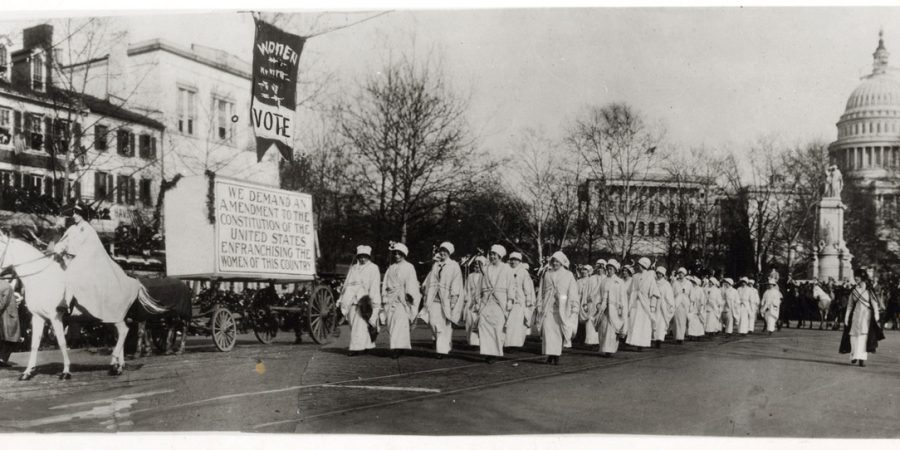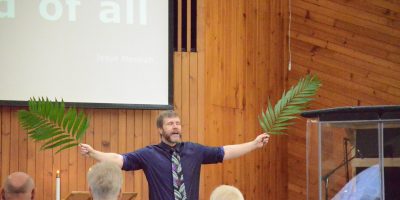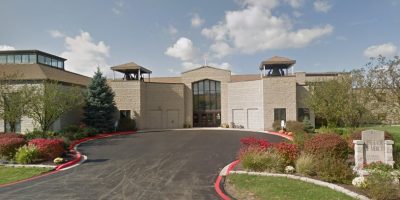“Methodists have a long history of strong, leading women”
Centennial of women’s right to vote: Methodist women play key role in women gaining ballot

by Al Benson
Flowing Forth United Methodist Church
Aurora
AURORA, Ill., Aug. 26, 2020 — One hundred years ago the 19th Amendment to the U.S. Constitution was ratified, guaranteeing women the right to vote. This milestone followed more than 70 years of persistence through setbacks and sacrifice. Methodist women were part of the struggle from almost the beginning.
On May 21, 1919, the House of Representatives passed the amendment, and two weeks later, the Senate followed. When Tennessee became the 36th state to ratify the amendment on Aug. 18, 1920, the amendment was adopted.
“Methodists have a long history of strong, leading women,” writes the Rev. Susan Lyn Moudry, a historian. She noted Methodism founder John Wesley accepted women lay preachers and class leaders from his movement’s earliest days.
The first Woman’s Rights Convention at Seneca Falls, N.Y., found a welcoming host in the Wesleyan Chapel, part of the Wesleyan Methodist denomination. Historians identify the 1848 gathering as the start of the organized women’s suffrage movement.
Back then, advocates for women’s rights and the abolition of slavery worked closely together. Sojourner Truth, a former slave who began her public ministry as an itinerant Methodist preacher, was an activist for both causes.
Women’s Christian Temperance Union leader Methodist Frances Willard sought to do more than encourage abstention from alcohol. The union fought to improve working conditions in factories, institute an eight-hour workday, raise the age of consent for girls and secure for women the right to vote.
“Many Methodist women, like Frances Willard, saw the vote as a way to further their aims,” said Harriett Jane Olson, United Methodist Women’s top executive. “It was not just a right. It was a necessary tool.”
Dawn Wiggins Hare, head of the United Methodist Commission on the Status and Role of Women, praised women and men who joined the struggle for the franchise. “Because the right to vote did not extend to all women, it is appropriate to adopt what others have said, we ‘commemorate’ rather than ‘celebrate’ the 100th anniversary of the 19th Amendment,” she said.
The word suffrage comes from the Latin word suffragium, meaning voting tablet. Still, opponents were happy to play on its similarity to another English word. With women’s suffrage, critics argued, men and families would suffer.
Suffragists would endure violence on the road to ratification. They continued to face mob attacks and when arrested for civil disobedience, they endured brutality in prison — including force-feedings when they went on hunger strike.
“We don’t need to sugarcoat that it was all these pretty women in white dresses with yellow sashes. They sacrificed,” said Annette Dorris, who serves with United Methodist Women in Tennessee’s Cumberland River District. She and other United Methodist Women in the district are using the 19th Amendment’s centennial as an opportunity to encourage U.S. citizens to vote, especially in Tennessee. In 2016, Tennessee ranked 48th in the nation for voter turnout among all states and the District of Columbia. “Let’s honor their sacrifice by getting out and voting,” Dorris said.
Many Black, Native American, Hispanic and Asian American women who had struggled for the 19th Amendment’s passage still were denied access to the ballot box. Methodist women such as Mary McLeod Bethune, Jessie Daniel Ames and Dorothy Height would continue the fight for voting rights and racial justice long after that August day in 1920.
Moudry, the United Methodist historian, said the Methodist involvement in the women’s suffrage movement shows that change is long and hard.
“The work for justice does not happen overnight; we cannot get discouraged or give into moments of defeat,” said Moudry, who is also the coordinator of clergy and lay leadership excellence in the Western Pennsylvania Conference.
“Leaders are needed who build bridges and help the church understand the issues involved in justice work,” she added. “This takes great courage and unwavering commitment, even in the midst of seemingly insurmountable obstacles,” Moudry said.
Read more news at XPian News… https://xpian.news

Al Benson
Al Benson is an Aurora-based freelance photo-journalist. He is currently an archives research specialist at Aurora University. His work has appeared in The Voice, The Daily Herald, The Beacon-News, and the Chicago Tribune.




Comments are Closed